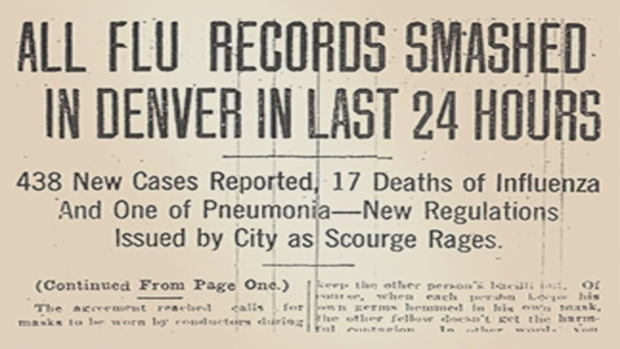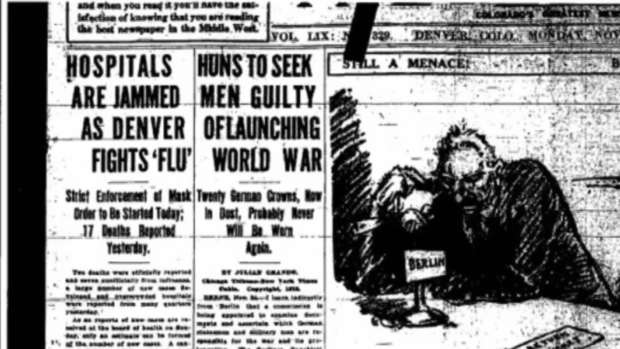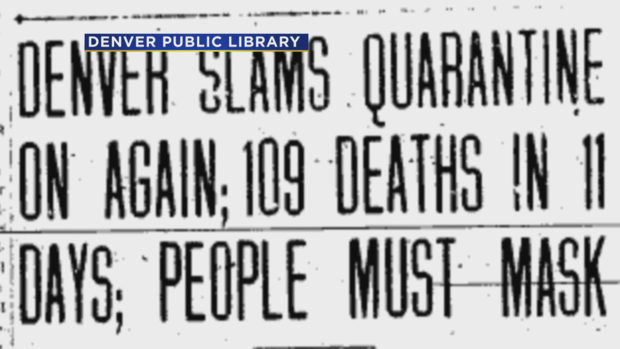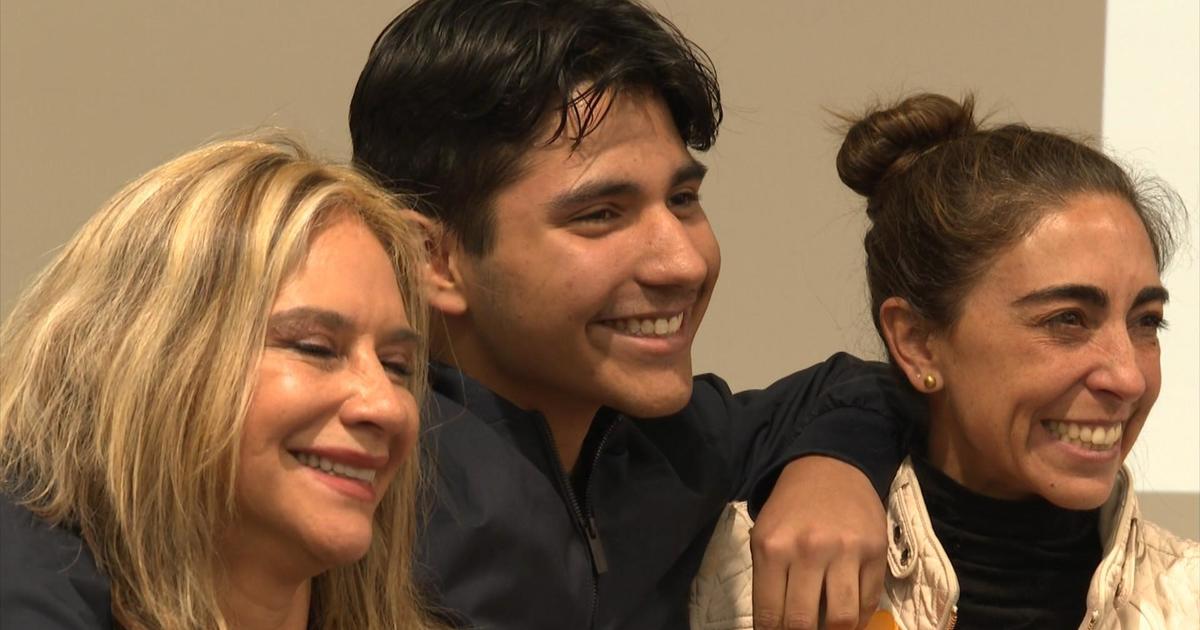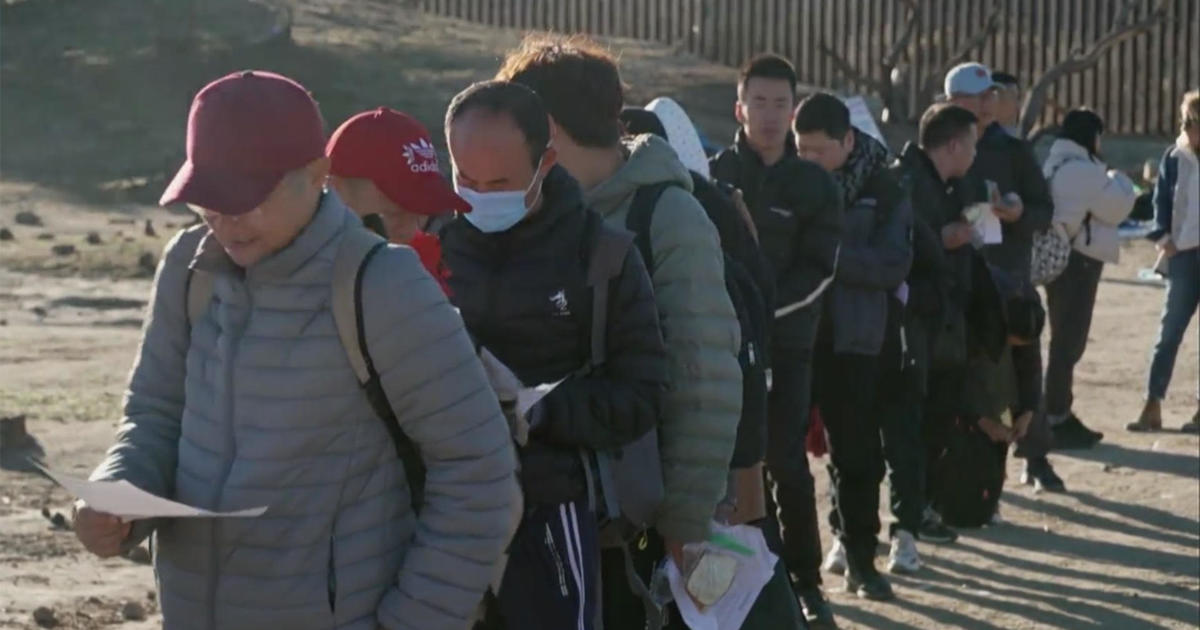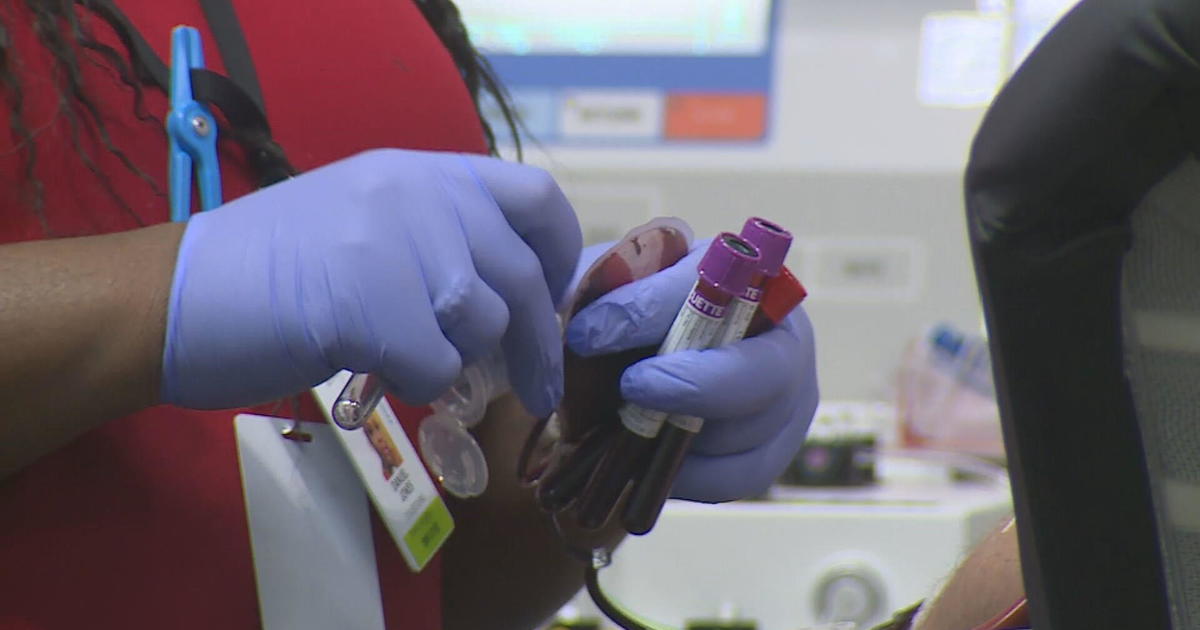2020 COVID Thanksgiving Headlines Echo Those From 1918 Spanish Flu Pandemic
DENVER (CBS4) – As Coloradans celebrate Thanksgiving, there's a lesson in history from the last time we dealt with a pandemic. It was the Thanksgiving of 1918, as the United States dealt with the Spanish Flu that would kill 675,000 Americans.
"I think there was virtually no difference between November 1918 and November 2020," says Andrea Malcomb, Museum Director of Historic Denver's Molly Brown House Museum.
"The headlines across the United States said things, like 'vaccine trials underway, stay home for Thanksgiving,' you know, 'cities in lockdown, mask orders in place.'"
Denver had been spared cases in the early part of the pandemic. U.S. soldiers had begun to get sick in the spring of 1918. But in September, a student at the University of Denver, Blanche Kennedy, who had returned to Denver from Chicago, died of the flu. It was on.
Cases rose in October, says Katie Rudolph, archivist and librarian at the Denver Public Library. Dr. William Sharpley, a former mayor, but serving at the time as Denver's Manager of Health and Charity, moved to create restrictions.
"So he had instated the ban for the closure of schools, theaters, churches, and what they referred to as paces of amusement," says Rudolph.
Over the course of about seven weeks, they had seen about 6,000 cases and 500 deaths. People didn't understand it.
"A lot of people blamed immigrants, foreigners, in the city for spreading the disease. They blamed Native Americans for spreading the disease," says Malcomb.
The H1N1 virus that caused the flu was called the Spanish Flu, because it was believed to have come out of Spain. But Spain was neutral in World War I and freely admitted it was a problem. Other nations likely had it, but at war, did not want to admit it.
It claimed many victims among the very young and people in the prime of life in their 20s. In that way it was different than the current SARS coV2 virus pandemic.
But there are many similarities. Debate over social engagement raged. And there were many questions about masks. Medical experts advocated them, but they were gauze and less effective than those used today.
"People were supposed to quarantine if they were ill," says Rudolph. "That being said, public transportation was still going on. They would open the windows on the street cars."
Denver was having a tough time figuring out what to do. First closing businesses, then not. Then pressure mounted. Business owners including theater operators went to the mayor and Dr. Sharpley, and the ban was reversed.
The big problem was Armistice Day -- when Americans celebrated the ending of the war.
"We had what we now call a super spreader event on Nov. 11 in 1918 and that was everyone finally celebrating the end of World War I," says Malcomb.
"On Nov. 21, Sharpley thought life was going to return to normal. He made that statement. But the next day more deaths were reported so he reinstated the ban and made masks compulsory."
"By Thanksgiving things were pretty grim," says Malcolm. "People were being asked to stay home and Denver was under a mask order, etc."
But it didn't work.
"The numbers probably tell us that people got together more than they probably should have," explains Malcomb. Christmas events were cancelled, as well as other events, like a women's voting event. Cases rose. "And so by January, we had a third spike in case in the US and it would be until the late Spring. It took a long time to recover and I think we're still on that recovery track here in the Unites States."
In all, 8,000 Coloradans died. The similarities remain 100 years later. And from her perspective at the Molly Brown House, Malcomb observes there is a way through our current times with lessons from the past.
"You know we've been here before, and we've done this before, and I think that we can take heart in that Denver got out of this before. And like Mrs. Brown, we have that unsinkable spirit and so I think we should take her unsinkable spirit, and know that we can weather this, but also know that it is probably best that we stay home."
